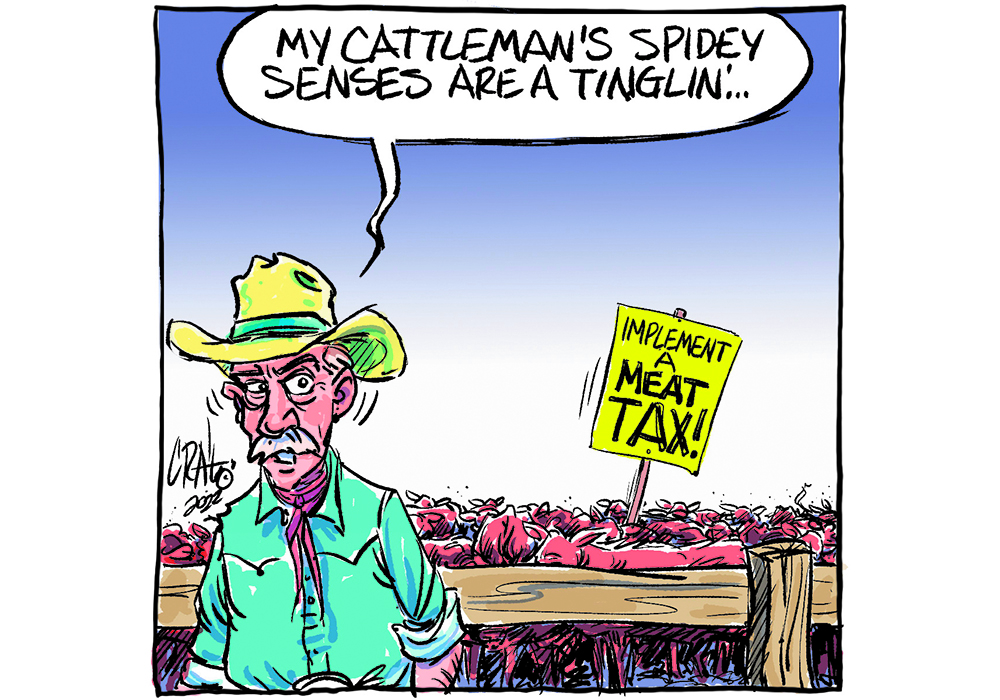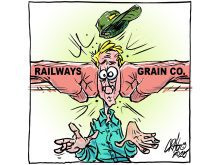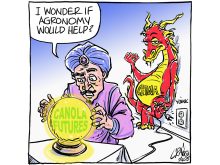Canadian governments have largely avoided taxes on grocery items but there is a suggestion in other parts of the world that meat and dairy should be taxed as a way to address climate change. Case in point, a recent opinion piece entitled “A meat tax is probably inevitable – here’s how it could work,” by professors from the University of Oxford and the Potsdam Institute for Climate Impact Research.
They muse that changing global diets will reduce greenhouse gas emissions from livestock and dairy production and a direct tax is one way to make that change happen. Germany and the Netherlands were considering it as an option until food prices soared following Russia’s invasion of Ukraine.
Read Also

Kochia has become a significant problem for Prairie farmers
As you travel through southern Saskatchewan and Alberta, particularly in areas challenged by dry growing conditions, the magnitude of the kochia problem is easy to see.
Authors of the above-noted opinion propose that the money collected would support efforts to replace proteins and calories formerly derived from meat.
The suggestion of a meat tax is yet another criticism levelled at animal agriculture and its supposedly outsized contributions to greenhouse gas emissions. These criticisms generally fail to consider the global benefits of livestock production in terms of land use, biodiversity and health.
Yes, there are diets that would cause most Canadians to reduce meat consumption to a point. Vegetarian and vegan diets would eliminate it. But that is a big ask of omnivores with millennia of history that supports a varied diet that includes meat.
The latest diet iteration is climatarian, which focuses on reducing greenhouse gases by one tonne of carbon dioxide equivalents per person, per year. This may be a goal for the developed world but the developing world is still increasing its meat and fish consumption.
Most arguments for putting the developed world on a greenhouse gas friendlier diet don’t come with taxes attached, but widespread voluntary compliance is unlikely.
Consumption taxes seem to be most often recommended by economists whose visions don’t consider the entire world of agriculture, and that is important.
Academics, no matter how well-informed, ill-informed or biased, are powerful influencers of the public and its elected officials.
A meat tax would encourage inappropriate uses of land and crops as growth shifted toward cultivation and away from native grass, tame pasture and rangeland. Most North American grazing land is not suited to cropping, nor should it be abandoned to indiscriminate growth that would benefit few.
Meat taxes on consumption in developed nations would likely reduce the amount eaten by the poor in those same nations — people who need affordable, nutritionally dense foods. It could also increase production in First World countries to meet export demand in developing countries.
On a regulatory level, meat taxes would require significant border adjustments — tariffs to keep out cheaper imports. That doesn’t mesh with global trade trends, nor would the subsidies required to keep farmers afloat and growing larger quantities of pulse crops and meat alternatives for regional consumption.
A meat tax would raise the cost of meat and dairy products, create production distortions that would encourage less efficient land use and interfere with farm and food processing efficiencies. And that’s only the start of potential objections.
However, it illustrates how dangerous an ill-informed and biased decision could be for the planet and its farmers.
If the world is to eat less meat, educating people about alternatives and incentivizing food processing that meets dietary desires and demands is a path.
Penalizing people, distorting markets and modifying social behaviour through taxation must not be part of any plan.
Karen Briere, Bruce Dyck, Barb Glen and Mike Raine collaborate in the writing of Western Producer editorials.

















